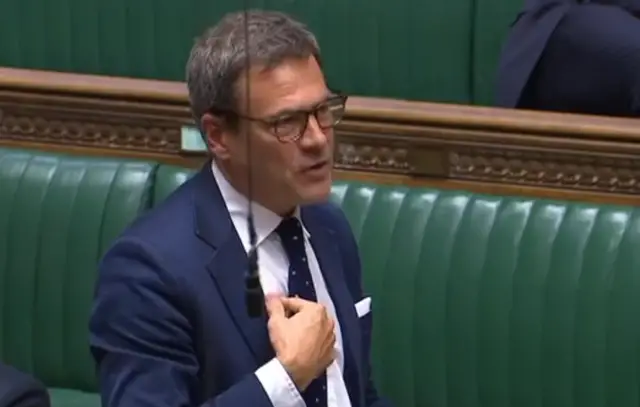In Parliament, on Monday evening, the Isle of Wight MP, Bob Seely, received an indication that the Isle of Wight was being listened to over relaxation of ferry competition rules.
The MP said he’d been working over the last week to get the Competition law that stops the ferry companies being able to talk to each other temporarily lifted, so they can ensure a link to the Mainland is maintained.
Seely: “Serious consequences for the Island”
In Parliament on Monday – talking on new clause 6 (in full below) – he said,
“The Isle of Wight is dependent on three private ferry firms.
“If staff from one or more of those firms go ill with Covid-19 and we have an outbreak, there will be serious consequences for the Island.
“Competition law currently prevents the firms from talking. That is still the case, despite eight days of efforts to get it moved.”
The thinking is that, once the ferry companies have permission to be able to talk to one other, they would be able to plan and implement joint services for the provision of food, medicine and other essential goods, as well as transportation for essential key workers.
Seely: “We need to stay open”
Bob went on to add,
“Although we are an Island, we need to stay open because we need food going out and coming in, we need key workers to go backwards and forwards, and we need people to continue to receive life-saving medical treatment in Southampton and Portsmouth.
“If the ferry firms fall over, we cannot do that. They are a true lifeline. I think people do not realise that an island separated from a land mass without a fixed link needs ferries.”
Letter needed
Whilst speaking, he explained he was being texted by the ferry firms who said they were not willing to talk to each other for compliance purposes until they had a letter from a Government Minister and a Secretary of State.
Bob asked for assurance that the delegated legislation would be laid before Parliament.
Mordaunt: Lobbying has worked
Penny Mordaunt MP (Portsmouth North), said that Seely would receive a letter from the relevant Secretary of State with regard to the Isle of Wight ferry issue.
She didn’t know the contents of the letter, but said his lobbying had worked.
Call on ferry companies to begin talks
The Isle of Wight MP has since spoken with Transport Minister, Kelly Tolhurst MP and written to the ferry companies today (Tuesday), asking them to start talking to each other.
In his letter he said:
“It is my understanding that during the conversation yesterday, all cross-Solent ferry providers were cleared by government to talk to each other for the purposes of resilience planning during the ongoing COVID-19 crisis.”
Bob said he understood that a Statutory Instrument (SI) – delegated legislation – was being written by government and would be retroactive when implemented, granting full legal permission for talks between ferry providers while preserving legal niceties where required with respect to current competition law.
New Clause 6
Powers relating to transport for isolated and island communities (see PDF)
- The Secretary of State, or relevant Minister in the devolved Administrations, may issue a direction to such ferry, bus and rail operators as the Secretary of State or relevant Minister thinks fit to
(a) work together to produce a plan for the continuing provision of a resilient transport service to isolated and island communities; and
(b) implement the plan to a timescale specified by the Secretary of State or relevant Minister. - The plan in subsection (1)(a) must cover—
(a) the provision of food, medicines and other essential goods; and
(b) the provision of passenger transportation to enable people to travel for essential purposes, including medical purposes. - The direction in subsection (1) supersedes all existing legislation, including but not limited to the Competition Act 1998, that would otherwise prevent operators from working together in the ways set out in subsections (1) and (2).
- The direction in subsection (1) must be given in writing to the ferry, bus and rail operators concerned.
- In this section “isolated communities” means:
(a) islands that are part of the United Kingdom but are not connected to the mainland by a bridge or tunnel, or
(b) communities with a population density of less than 100 people per kilometre.”





